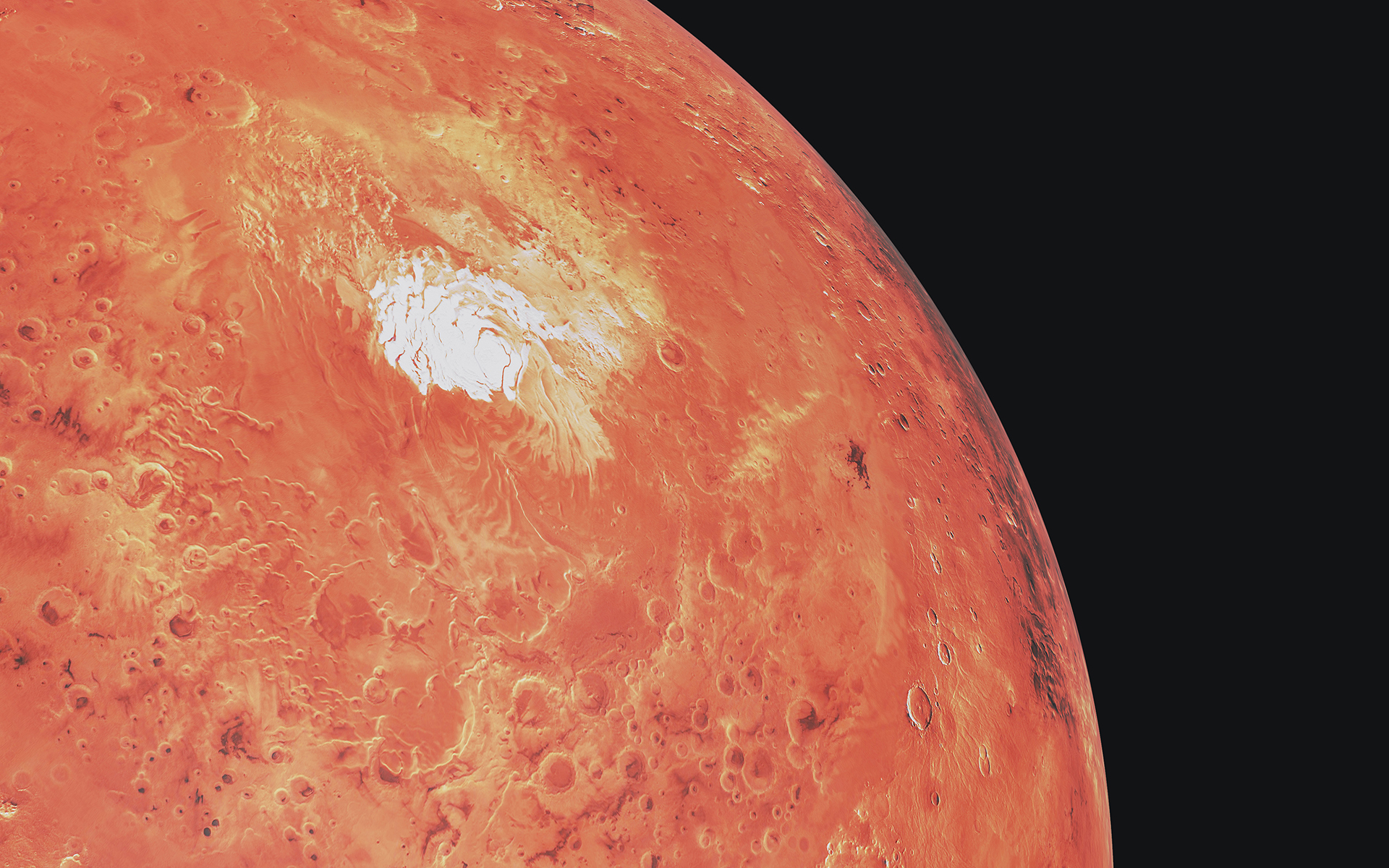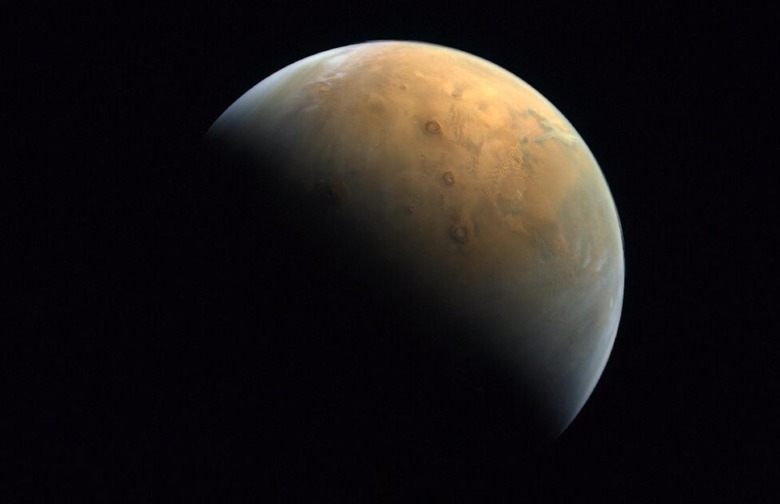Climate Change On Mars May Have Been Caused By Ancient Microbes
A new study says that ancient microbes could have been responsible for Mars's climate change, leaving the planet a barren wasteland. Around 3.7 billion years ago, these ancient microbes would have been feeding on hydrogen and excreting methane into the Martian atmosphere. On Earth, similar microbes helped warm the atmosphere. On Mars, though, it cooled the atmosphere down.
This cooling, the researchers say, may have caused the ancient microbes to dig deeper within the surface of the planet, thereby causing the climate change on Mars that led to the planet's barrenness today. And, because Mars is further from the Sun than Earth, it needed that warming effect of the greenhouse gasses to keep its heat in.
It's an intriguing study that considers the differences between the atmospheres of Earth and Mars. Many believe Mars once had rivers and maybe even oceans spread out across its surface. One of the biggest issues with these climate changes on Mars, the study says, is tied to how the hydrogen reacted within the atmosphere.

On Mars, hydrogen would have been a very potent warming gas because of a collision-induced absorption effect where carbon dioxide and hydrogen molecules interact with each other. The climate change on Mars was therefore caused by the replacement of one warming gas with another. We don't see this effect on Earth because our atmosphere is not as rich in carbon dioxide as Mars used to be.
Methane is a much less potent warming gas. And, because these ancient microbes ate the hydrogen and then more methane was spewed out, the Martian surface became colder and colder. This, the study concludes, is what led to climate change on Mars, causing the rivers, lakes, and oceans to fade. Trapping any signs of life on Mars deep beneath the surface.
Whether this intense change in the climate could be undone is another thing, though. Perhaps when NASA completes a manned mission to Mars, we'll be able to learn more about the environment. For now, the modeling that the study relies on shows that these ancient microbes responsible for climate change on Mars would have continued to retreat deeper and deeper into the Martian surface.
